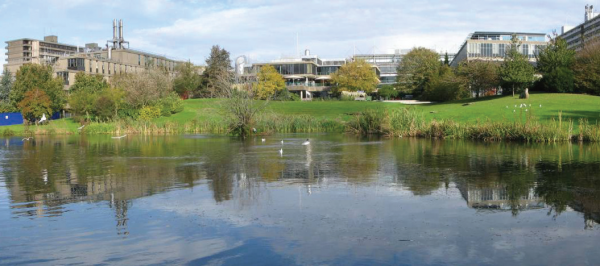
The University of Bath invited Michael HINDLEY to take part in a panel discussion on Britain’s membership of the EU.
Mission report: VISIT TO BATH UNIVERSITY
I had already accepted an invitation to be a FMA guest lecturer at the University of Bath (17th-18th November 2015) when the additional request came for me to take part in a panel discussion on Britain’s membership of the EU. Readers will be well aware that Premier Cameron has offered an ‘in-out’ referendum which now will take place as early as summer 2016. Bath, a spa town in Roman times, did not host a university until the 1960s and the university’s stark concrete functionalist buildings seem planned to contrast with the stylish and elegant town centre dating from Regency times.
During my time as an MEP, a German colleague of me always joked, ‘every time there is a debate about next steps for the EU, in the UK the debate always starts with whether your country should be in the EU at all !’ 2015 has seen two seismic shocks threatening to bring down two pillars of EU integration. The Greek debt crisis and the mass infl ux of refugees have raised existential questions about the Euro and Schengen. By luck and good judgement the UK stayed out of both. And so whilst the EU debates the future shape of the EU, the UK is plunged into a debate about actual membership. ‘Grexit’ followed by ‘Brexit’? The original invitation was to address an under-graduate course entitled ‘Europe and Global Politics’. This subject suited me not only because of my previous activity as Vice-President of the EP’s REX Committee, but also because I am currently acting as an expert for the European Economic and Social Committee’s (EESC) preparing a report on the Commission’s ‘Trade for All’ communication. Interestingly, the communication is sub-titled ‘Towards a more responsible trade and investment policy’, implying perhaps that the Commission’s previous trade policies were not quite as ‘responsible’ as they should have been. Certainly on of the great clichés of the 1990s, namely that ‘a rising tide raises all boats’, has proven to be illusory. The Commission previous strategy, ‘Global Europe’, quite explicitly acknowledged that the benefi ts of liberalised trade had not been shared by all. The lunch time panel discussion was a lively affair. Two academics joined me on the panel, one specialising in ‘Euroscepticism’, a subject unlikely to exhaust research material in any immediate future, especially in the UK. Though the issue of a possible UK exit – ‘Brexit’ – usually generates more heat than light, this was not the case at Bath University. The questions were based on knowledge, a rare treat when debating the EU in Britain! When I studied Modern Languages at London University in the 1960s ‘foreign’ lecturers outside beyond temporary ‘assistants’ were rare. Now it is commonplace to fi nd international staff throughput a wide range of subjects. My visit was organised by a Spanish academic and the class tutor was a Lithuanian, a happy sign that integration is happening at one important level, that ofacademic exchange.

